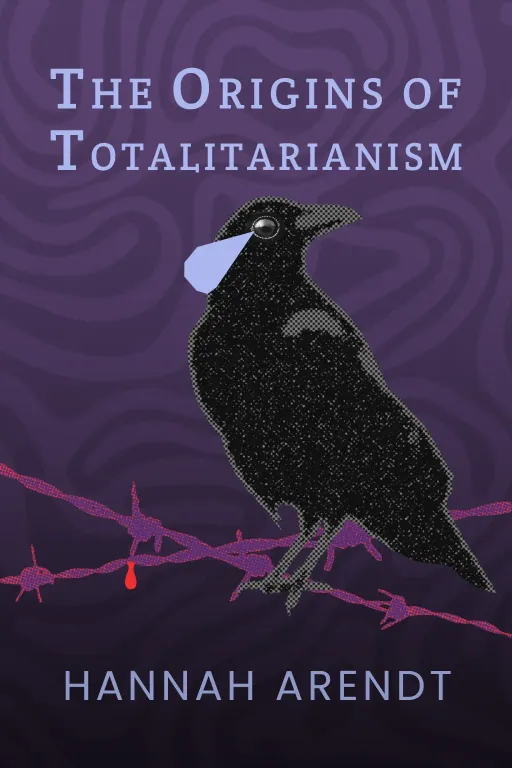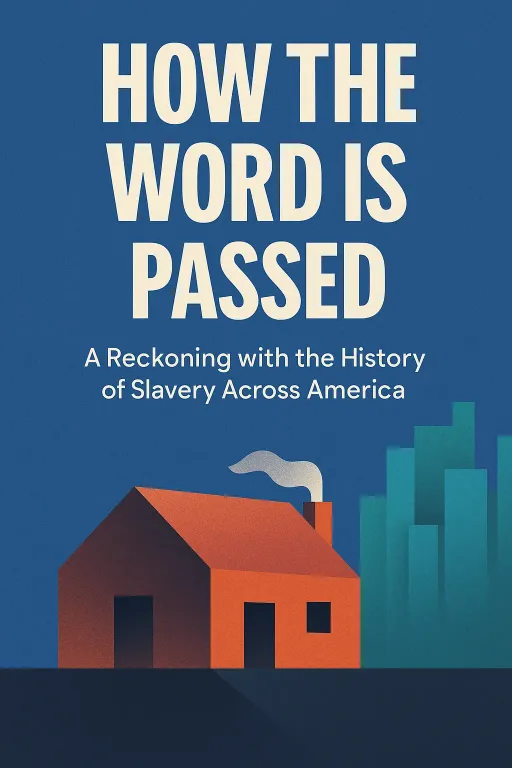
The Origins of Totalitarianism
10 minIntroduction
Narrator: What happens when a man is condemned not for what he did, but for who he is? In 1894, Alfred Dreyfus, a Jewish artillery captain in the French army, was convicted of treason. He was publicly stripped of his rank, his sword broken, and he was exiled to the infamous Devil's Island. The problem was, he was innocent. The evidence was forged, the trial a sham, and the entire affair was fueled by a rising tide of antisemitism that saw him as a convenient scapegoat. The Dreyfus Affair was more than a miscarriage of justice; it was a tremor that signaled a coming earthquake. It revealed how a society, riddled with anxiety and decay, could turn an ancient prejudice into a modern political weapon.
In her monumental work, The Origins of Totalitarianism, political theorist Hannah Arendt argues that this was no isolated incident. Instead, she presents it as a crucial piece of a dark puzzle. Arendt meticulously traces the historical threads of antisemitism and imperialism, arguing that they were not mere precursors but essential ingredients that crystallized into the 20th century's most terrifying and novel form of government: totalitarianism.
Antisemitism as a Political Tool: The Peril of Wealth Without Power
Key Insight 1
Narrator: Arendt argues that to understand the political potency of modern antisemitism, one must look beyond simple religious hatred or the "scapegoat theory." The common explanation—that the Nazis simply needed a target to blame for Germany's problems—is dangerously incomplete. It's as absurd, Arendt suggests through a popular joke of the time, as blaming a war on "the Jews and the bicyclists." When asked, "Why the bicyclists?" the immediate response is, "Why the Jews?" The point is that the choice was not arbitrary.
Instead, Arendt draws a powerful parallel to Alexis de Tocqueville's analysis of the French Revolution. Tocqueville observed that the French people hated the aristocracy most not when their power was absolute, but when it had faded, leaving only their wealth and privilege. They had become a class with immense fortune but no visible public function, making them seem like parasites. Arendt posits that European Jewry found itself in a similar, precarious position. For centuries, Jewish financiers had played a crucial role in financing nation-states. But with the rise of imperialism and new forms of finance, this state-sanctioned function eroded. What remained was the perception of Jewish wealth, now detached from any clear societal purpose. This combination of wealth without power, of influence without clear responsibility, made them the perfect target for resentment. They were no longer seen as a part of the state, but as a shadowy, international power operating against it, making antisemitism a uniquely effective tool for political mobilization.
Imperialism's Blueprint: Exporting Violence and the Logic of Race
Key Insight 2
Narrator: As the nation-state began to fray internally, it exploded externally. Arendt identifies late 19th-century imperialism as a radical break from mere conquest. It was a new political logic driven by what she calls "superfluous men and superfluous capital." Industrial economies produced more money than could be profitably invested at home and more people than could be employed, creating an alliance between the mob and capital to seek expansion for its own sake.
This new era was personified by figures like Cecil Rhodes, the British colonialist in Africa who famously declared, "Expansion is everything. I would annex the planets if I could." This was not the logic of a statesman but of a businessman imposing the law of endless accumulation onto politics. To justify and manage this expansion, two new political devices were essential: bureaucracy and racism.
In the colonies, particularly in Africa, bureaucracy became a form of "rule by nobody," a detached and dehumanizing system of administration that could govern vast, foreign populations without the constraints of law or consent. Racism, in turn, provided the ideological justification. The Boers in South Africa, for instance, isolated and surrounded by native tribes, developed a society built on the absolute, God-given difference between races. They did not see the native population as a lower class, but as a different species altogether. Imperialism seized upon this race-thinking, transforming it from a local prejudice into a principle of government. It was in the colonies that Europeans first learned to rule over others as if they were not human, a lesson that would eventually be brought back home.
The Totalitarian Machine: Fusing Ideology and Terror for Total Domination
Key Insight 3
Narrator: Totalitarianism, in Arendt's analysis, is what happens when the tools of imperialism are applied to European populations. It is not just a brutal dictatorship; it is a completely new form of government that aims to destroy all social, legal, and political traditions. It thrives not on citizens or classes, but on "masses"—collections of atomized, isolated individuals who have lost their common-interest-based connections.
This new form of rule is powered by a dual engine: ideology and terror. Totalitarian ideology provides a fictitious, but perfectly consistent, world. It claims to have discovered the hidden laws of history (the class struggle for the Bolsheviks) or nature (the race struggle for the Nazis). This "scientific" certainty is presented through propaganda that is less about persuasion and more about organization. For example, Hitler's 1939 "prophecy" that a world war would result in "the annihilation of the Jewish race in Europe" was not a threat, but a statement of supposed historical inevitability. The movement's goal was to make the prophecy come true.
Terror is the instrument used to translate this fictitious world into reality. It is not used simply to eliminate opponents, but to dominate a completely subdued population. The secret police targets not just actual enemies, but "objective enemies"—people who are deemed dangerous not for their actions, but for their identity (their class or race). In this system, the concentration camps become the ultimate laboratories, designed to prove the totalitarian belief that everything is possible, including the complete eradication of human spontaneity and individuality.
The Right to Have Rights: The Plight of the Stateless
Key Insight 4
Narrator: The ultimate horror produced by this system, Arendt concludes, is not the loss of any specific freedom, but the destruction of the very framework that makes rights possible. After World War I, the collapse of empires created millions of "stateless" people—minorities and refugees who belonged to no political community. They were living proof of a terrifying new reality: the "Rights of Man," so celebrated in the 18th century, were meaningless without a government to guarantee them.
Arendt observes that "the world found nothing sacred in the abstract nakedness of being human." Once a person is stripped of their political status, they are expelled from humanity itself. They lose more than their home; they lose a place in the world that makes their opinions significant and their actions effective. This is why Arendt argues that before any other right, there must be a fundamental "right to have rights"—the right to belong to an organized political community. The stateless person, belonging nowhere, becomes superfluous. And the terrifying logic of totalitarianism is that those who are superfluous can be eliminated without consequence. The concentration camps were, in essence, places where this superfluity was made absolute.
Conclusion
Narrator: The single most important takeaway from The Origins of Totalitarianism is that this monstrous form of government was not an historical accident or the product of a few evil men. It was the culmination of specific, identifiable forces: the decay of the nation-state, the political weaponization of antisemitism, and the lawless logic of imperialist expansion. These forces converged to create a society of isolated, rootless masses, hungry for an ideology that could give their lives meaning, even a murderous one.
Hannah Arendt’s work is not a history book to be placed on a shelf; it is a living warning. It forces us to confront the fragility of our own political institutions and the conditions that make them vulnerable. The forces that create "superfluous" people—mass displacement, political alienation, and the breakdown of community—have not vanished. Arendt’s most challenging question, then, remains profoundly relevant: In a world of constant change and upheaval, how do we ensure that every individual has a place to stand, a community to belong to, and a guaranteed "right to have rights"?









